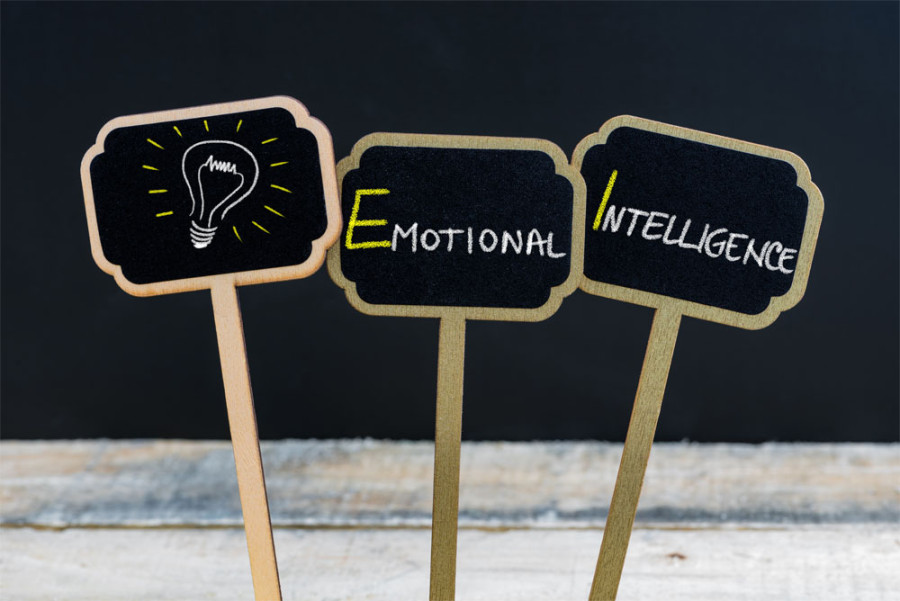Life & Style
Lack emotional intelligence? We got you covered.
What does it take to be emotionally intelligent? Here’s how you can score well in the emotional intelligence department, according to experts.
Ankit Khadgi
A year ago, Susmita Baskota was a different person. An introvert, she would prefer to suppress her emotions rather than express it, which eventually affected her, she says. However, after attending a session on emotional intelligence last March, organised by Rotaract and facilitated by My Emotions Matter, a social enterprise working on emotional intelligence, things are different for her now.
“The session opened doors for me. It made me realise I should acknowledge my emotions rather than hold them back,” says Baskota, 24, who, since the session, has been trying to understand more about her emotions and how she feels so she can channelise them in a positive direction.
Although not widely acclaimed or considered a significant ability, emotional intelligence has, over the years, been gaining attention from all spheres of life. But few understand its significance.
According to Sagar Satyal, co-founder of My Emotions Matter, emotional intelligence simply means being smart with your feelings, so that you can solve interpersonal problems. “Emotional intelligence means having the ability to identify and understand what both I and the other person is feeling, and to think through how I might respond in a way that creates a win-win in my relationship with the other person instead of making things worse,” says Satyal.
Several studies have also shown that emotional intelligence has a direct link with the mental health of a person. According to Bina Shrestha, a psycho-social counselor at Transcultural Psychosocial Organization Nepal, the more emotionally intelligent a person is, the better their mental health will be.
A report published by the World Economic Forum ranked emotional intelligence as one of the most desired qualities employers will be looking for in 2020. Likewise, even during the current pandemic, leaders who have great emotional intelligence have proven to handle the situation more effectively.
So, what does it take to be emotionally intelligent? Here are a few ways through which people can follow to develop their emotional intelligence.
Acknowledging and accepting your emotions
According to Satyal, self-awareness and acknowledgment of emotions is the first and foremost step of building emotional intelligence. “When we are aware of how we are feeling, we then choose how to respond to that emotion,” he says.
However, although it may sound good in paper, acknowledgment isn’t as easy it sounds, says Satyal. “Unfortunately, many people aren’t even aware when they are in the grip of their emotions and hence tend to make things worse through their blind reactions,” he says.
To keep blind reactions at bay, there are few steps that people can adopt. According to Shrestha, expression of emotions is the key to acknowledgment. “Even if we express what we are feeling in a filtered way, sharing how we are feeling with others can help us to open up our emotions,” she says.
However, she says, accepting emotions is equally important. “People have the habit of acknowledging their emotions, only if it makes them happy. We need to accept the emotions of sadness as well,” says Shrestha.
Satyal recommends keeping a journal to note down one’s reactions, as it can help people to improve self-awareness. He even stresses the need to become fluent in the language of emotions by building one’s emotional vocabulary.
Developing the habit of responding to emotions rather than reacting to it
If one wants to be emotionally intelligent, one thing Satyal recommends is cultivate the habit of responding rather than reacting to emotions. However, it’s not as easy as it sounds. “It is hard to think rationally when we are in the grip of an emotion,” says Satyal. “Emotions draw us to the short term. When feeling angry, it is hard to think rationally about long-term consequences. This is also called ‘emotional hijacking’.”
According to Satyal, as many people react to emotions rather than responding to them, it can lead people to lash out at their colleagues and partners, which eventually they later regret. And this is why Satyal believes responding to emotions should come in the picture. “Responding to emotion means recognising that you are experiencing it. We don’t have to deny that we are angry with our colleagues or partners. But instead of acting on the emotions blindly, we can take a pause and then express our anger in a thoughtful way,” he says.
Likewise, Satyal also stresses the need for people taking the responsibility of their anger rather than resorting to blaming, judging, or diagnosing the other person. “Making space every day to reflect on our reactions can be helpful in gradually getting better at responding rather than reacting,” he says.
Motivating thyself so thou can bounce back from adversity
One thing that makes most people vulnerable to their emotions is that they think that their problems and adversities are permanent. Although the struggles can be difficult for people to bear at times, as life is filled with stress, according to Shrestha, people should be encouraged to develop a positive outlook, which she believes can be achieved through motivation.
“People should look back at the good things that have happened to them. This way, they can feel motivated that life is not always going to be sad, helping them to overcome the difficult situation,” says Shrestha.
Shrestha believes that self-motivation can be a great coping strategy for the people, as it can help them to stay calm, give them strength to bounce back from adversities as well as navigate their emotions positively. And to build up the confidence of self-motivation, Shrestha says friends can play a great role. “When we share and talk about our problems and how we are feeling with our friends who are really supporting, then they can motivate us,” says Shrestha.
Focusing on active listening instead of ‘hearing’
Despite the many technological avenues that exist for people to communicate, people are more focused on hearing than listening to each other, which experts believe can be a drawback when it comes to emotional intelligence.
“People have a deep need to feel seen and heard. But unfortunately listening is not something we try hard to get better at,” says Satyal. According to him, listening is not just about paying attention to the words which the other party speaks. It’s also about the feelings and the needs of the other person, which he believes that people should focus on.
“If we can develop the understanding that everything we humans do is in the service of our needs, then no matter what is said on the surface, we can learn to dig deep into the underlying needs of the other person. This can help us connect better not just with others but also with ourselves,” he says.
Likewise, Shrestha also believes that active as well as empathetic listening can be a great way of developing emotional intelligence, as it can help people to understand each other in an effective way she says.
Practising empathy as a way of life
Satyal believes that one of the core components of emotional intelligence is practising empathy. “We cannot resolve differences in our relationships without the ability to relate to the feelings and needs of the other person,” says Satyal. “We don’t always have to agree with others but we can always approach our differences with a mindset of seeing other people as people who have their own needs, challenges, and objectives.”
“When we approach our relationships this way, we are naturally more helpful to others. This helps us find creative solutions to our problems and enhance our relationships”, he says.




 9.89°C Kathmandu
9.89°C Kathmandu










